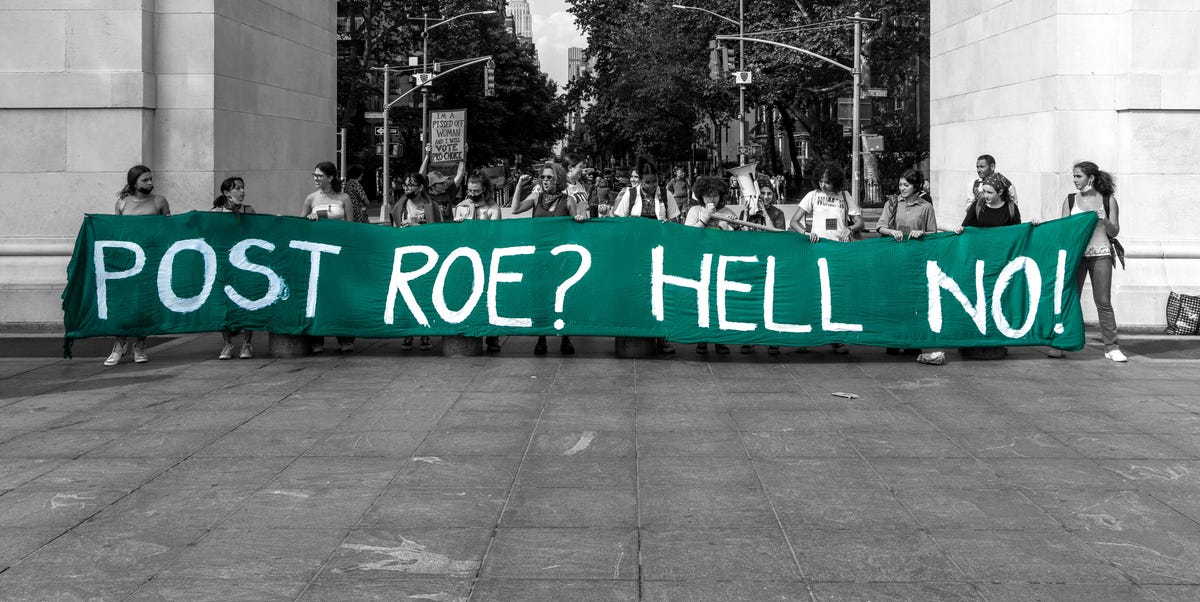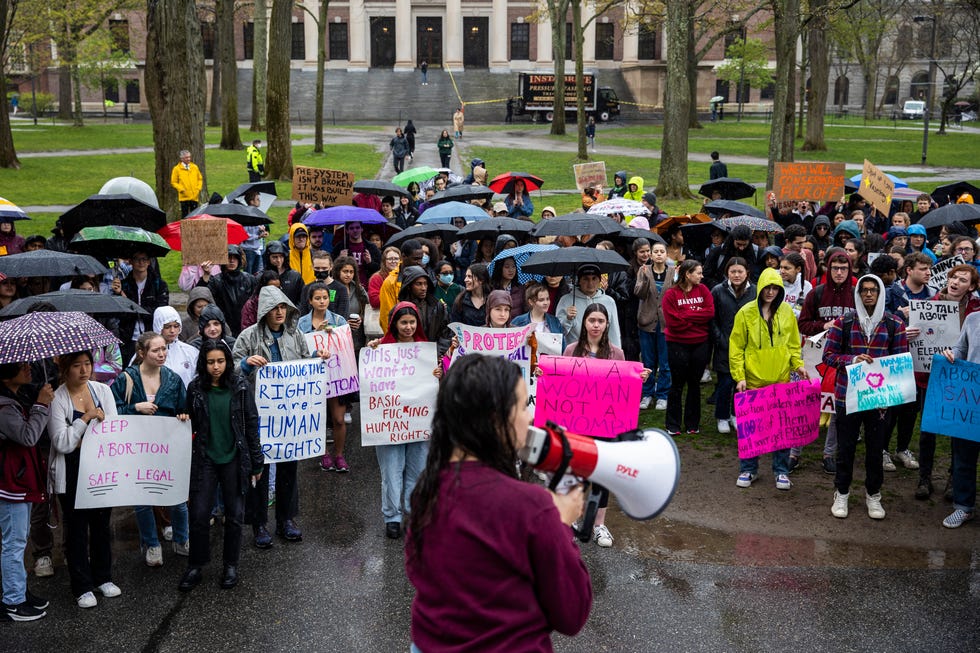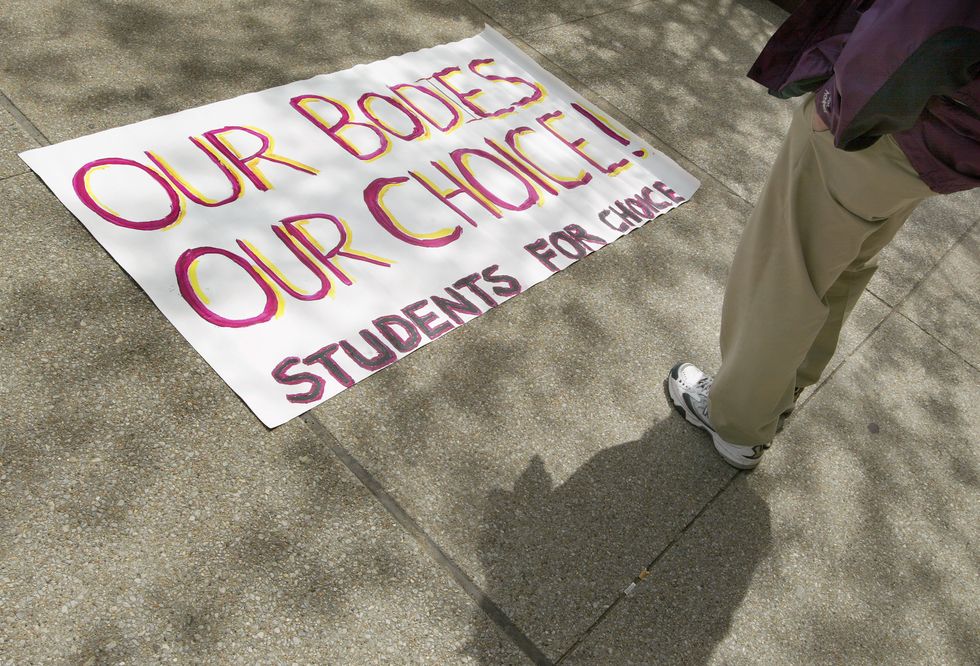This past fall, as attacks on reproductive rights continued in certain states and at the federal level, Barnard College took action by announcing plans to offer abortion pills on campus in 2023, following the lead of California and Massachusetts. “Barnard applies a reproductive justice and gender-affirming framework to all of its student health and well-being services, and particularly to reproductive health care,” Marina Catallozzi, Barnard’s chief health officer, and Leslie Grinage, dean of the college, said in a joint statement. “In the post-Roe context, we are bolstering these services.” Though the move was positioned as a direct response to the Supreme Court’s decision in June 2022, it turns out a group of students at the New York City-based private women’s college has been putting pressure on the institution—an affiliate of Columbia University—for years.
Niharika Rao, 22, an organizer for NYC for Abortion Rights and co-founder of Reproductive Justice Collective, a student-led group heading up awareness efforts on campus, says getting access to medication abortion has been “a grassroots campaign led by students from start to finish” and emphasizes that this is only the beginning. “We want to work with Barnard to ensure that the care provided is non-coercive, and that there are funding and doula support options available. Our next step is also to continue this advocacy at Columbia and pass the state-wide bill that will expand medication abortion access to SUNY and CUNY campuses.”
Ever since the reversal of Roe v. Wade, the battle for safe, legal, and accessible access to abortion has never been more important. According to a report from the Guttmacher Institute, at least 66 clinics across the country were forced to stop providing abortion care in the first 100 days after the ruling. In the post-Roe political fallout, at least 14 states have created laws that either outright ban abortion or heavily restrict it via gestational age limits as early as six weeks of pregnancy. As access to abortion continues to erode nationwide, many of the conversations and policies introduced in response to the far-reaching implications of Roe’s reversal have failed to underscore the ways in which these laws are affecting one of the most vulnerable and unprotected groups of our population: young people.
Recent Barnard graduate Maya Corral, 23, a former RJC member and Advocates for Youth activist, has been advocating for access to medication abortion alongside Rao since 2020. “People assume that because we’re in New York, everyone has these really progressive politics—especially about abortion,” she says. “After talking to students and [members of the] administration, I realized that is far from the case. I’m excited to see what happens next for abortion access on our campus.”
Barnard students aren’t alone in their fight, either. Last semester, they were joined by dozens of students, New York State Assembly members Jessica Gonźalez-Rojas and Harvey Epstein, bill sponsor and state Sen. Cordell Cleare, and representatives at both SUNY and CUNY schools in support of accessibility to abortion pills across public and private universities in the state of New York.
According to Corral and Rao, the process of bringing medication abortion to campus was a long one, and required a great deal of work on the ground by student organizers. “I became involved RJC in 2020, when we recognized RJC as the only group on our campus capable of the organizing necessary to accomplish this,” Corral says. “We campaigned, largely silently and behind the scenes, attempting to collaborate with the college for the majority of the 2020-2021 academic year.”
Rao adds: “It wasn’t until we took this campaign public as the Dobbs decision dropped that we were able to gain momentum through petitions, tabling, and public informational events.” Indeed, after gathering more than 1,000 signatures from students, alumnae, faculty members, and putting public pressure on Barnard, the college agreed to provide medication abortion by fall 2023, a major success for the two-year campaign. But there’s still work to be done. “We recognize how many other reproductive justice issues pose an access or informational problem on our campus,” Rao says.
As for what’s next for RJC and Barnard, both are working in tandem on a campaign to bring medication abortion to every college campus in New York state through legislation for SUNYs and CUNYs. In fact, on January 12, New York Governor Kathy Hochul’s 2023 State of the State Address mentioned support for abortion pills on those campuses, meaning it’s part of the executive budget and therefore is likely to be passed and signed into law during this legislative session. RJC is also organizing on campus to fight for health care access for queer and trans students, building community around reproductive justice issues, and working on national campaigns to make birth control pills available over-the-counter. When asked what she’d like her fellow students to know about organizing for reproductive justice, Rao urges them to articulate specific demands. “Once you have a sustained demand, you can plan multiple actions around it.”
Larada Lee-Wallace is a California-based organizer, storyteller, writer, doula, advocate, and reproductive justice practitioner. She currently serves on the board of directors for California’s only statewide abortion fund, ACCESS Reproductive Justice, and as the State Campaign Manager for Abortion Access at Advocates for Youth. She also contributes to We Testify, an organization dedicated to the leadership and representation of people who have abortions, increasing the spectrum of abortion storytellers in the public sphere, and shifting the way the media understands the context and complexity of accessing abortion care.


